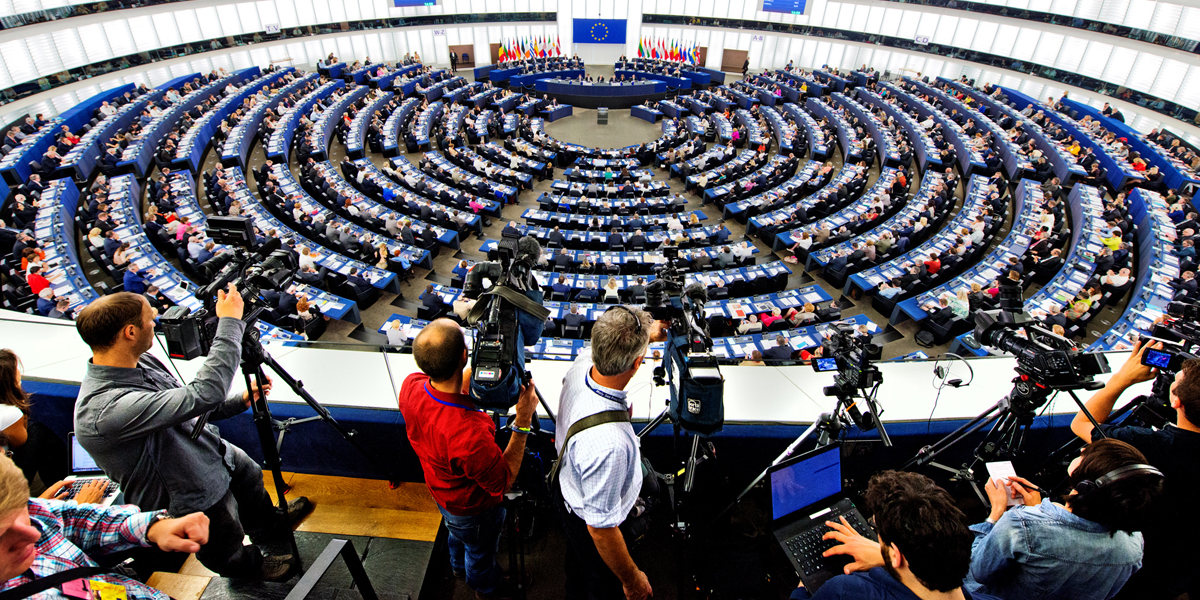Negotiating Brexit: A road to nowhere?
As Brexit talks continue, Simon Usherwood assesses progress so far Much ink has been spilt over Brexit and its myriad dimensions since last summer’s referendum. However, as the UK works its way through the opening rounds of the formal Article 50...
As Brexit talks continue, Simon Usherwood assesses progress so far
Much ink has been spilt over Brexit and its myriad dimensions since last summer’s referendum. However, as the UK works its way through the opening rounds of the formal Article 50 negotiations it is time to take a dispassionate look at how the government is performing.
Whatever your position on the desirability (or not) of Brexit itself, we need to ask. In purely procedural terms, the government considers itself bound to the outcome of the referendum and it now pursuing its realisation.
But this starting point already leads to a first observation: for all that Brexit was a decision of the British polity, almost everything that has followed since has been driven by the European Union. This includes the use of Article 50, the sequencing and structure of negotiations and the content within that structure.
The only aspect so far that the UK has determined has been the starting date for the process.
Why might this be so?
The simple answer is that the EU has followed good negotiating practice from the start, while the UK appears not to have done so.
Most importantly, the EU knows what it wants. This boils down to ensuring that the integrity of the treaties is maintained and that membership is a better deal than non-membership. From that very simple starting point, it has been able to build up everything that follows, by virtue of having these underlying interests in place. Interests are not the same as positions, which are specific and usually rigidly defined, and are really useful because they leave options open, rather than closing them down.
This matters especially for Article 50, because the UK does not have a similar set of interests: wanting ‘the best possible deal’ is not an interest, but a statement of hope. In the face of the UK’s uncertainty, the EU is able to adapt and work around what it finds, as the UK finds it. Reading the negotiating mandate for the commission, it is evident that there isn’t any particular outcome that it requires, only a set of observations about the consequences of anything the UK might desire. Thus, the mandate notes that the four freedoms of the single market belong together, so it’s all in or all out, but the UK can decide which for itself.
Secondly, the EU has largely separated the people from the problem. It has been very largely indifferent to who sits in the negotiating chair, or in Number 10, or how big anyone’s mandate might be, because instead it has been focused on the specifics of resolving the Article 50 to a satisfactory conclusion for all involved. In this it has been helped by its relatively dominant position, and by not having to work its (multiple) domestic audiences, but the difference in tone is very evident: one side handling detailed questions of policy, the other making noises off about whistling.
Rather than losing time and effort in managing personality clashes, the commission has been able to gather and manage a lot of detailed discussion, generate options and identify preferred outcomes. Consider here how quickly it came to an evaluation of the UK’s proposal on citizens’ right and how this was presented in terms of the proposal, rather than of the people presenting the proposal.
And this is the third point: the EU has done lots and lots of preparation. From the morning after the referendum, work was begun to build teams, gather information, find consensus positions with member states and the European parliament, so that it was more than ready to go by the time the UK got around to submitting notification in March. The commission has now issued 10 position papers, while the UK has produced seven. Admittedly, the commission hasn’t produced one on the Irish border question, but the overall impression is of directed and focused problem-solving at work. In all of this, it has been helped by having enough resource to pursue this work, without having to set up extensive new structures. While Theresa May spent the autumn touring European capitals finding out what might be possible, the EU was building up a head of steam.
This preparation has then fed into owning the agenda. The ideas contained in the very first response to the referendum have been reinforced and elaborated consistently and firmly since, presenting the Article 50 path, and its sequencing, as the only viable and acceptable path to follow. Even the issuing of multiple position papers is a reflection of how it keeps the UK on the back foot, constantly having to respond to the latest output rather than advancing its own ideas first. In the court of public opinion, the UK ends up looking like it’s playing catch-up or being churlish about what’s suggested.
The EU has made the most of this advantage by constructing positions that deal with process before results. The financial liabilities paper is a central exhibit here, as it tries to suggest a way of agreeing a sum, rather than suggesting a sum directly. It might seem obvious, but if everyone can agree on a fair way to do something, then they are much more likely to agree that the outcome is fair, and seen to be fair by others. In this particular case, this matters, because it contains a simple way of drawing out some of the inevitable sting from British reactions, especially from the harder end of the spectrum, for whom any sum is too large. Think of it either as a bit of negotiating ju-jitsu by the commission – appealing to British fair play – or alternatively as trolling, after all the fuss David Cameron made about fairness during his renegotiation.
Finally, the commission has one more card up its sleeve, namely that it is structurally inflexible. You might call this its Uruguay aspect, after its move back in 1992 at the conclusion of a long round on talks for the then GATT, where the commission claimed (largely sincerely) that it couldn’t give any more ground to the US on agriculture because the French wouldn’t let it.
For GATT, so for Brexit. The mandate might have been largely consensual in its formation, but different member states have different interests in the outcome, so the mandate is something of a balancing act. Both the process of its agreement and its content have already hardened what the commission might give ground on in the talks. Expect a virtual trip back to Blair House at some point.
But there’s another question underlying all of this: if this is all so obvious, why haven’t the British done the same?
Partly, they have. There has been much work in DExEU and other units to build up capacity, plans and positions, most of which has yet to see the light of day.
And that’s because of the first aspect of negotiating practice noted above, namely the question of purpose. Reading neither the Lancaster House speech or the white paper produces any understanding of what the UK wants. Brexit might mean Brexit, but circular definitions do not constitute an objective.
This point bears being firmly underlined. The referendum campaigns (on both sides) were a pursuit of winning the vote, not having a discussion about the future direction of the country. The slogans and the claims were designed to get out the vote, not to develop a vision of what the UK might look like. At best, that campaigning created a set of empty signifiers, to be filled by individual hopes and aspirations, but with no means of aggregating and implementing them. Unless there is a general understanding of that, then the purpose of being out of the EU is unclear and must necessarily remain so.
Until then the commission will be able to continue to advance its agenda and preferences, knowing that the UK will struggle to engage or push back, because it simply doesn’t know what it wants or what it needs.

